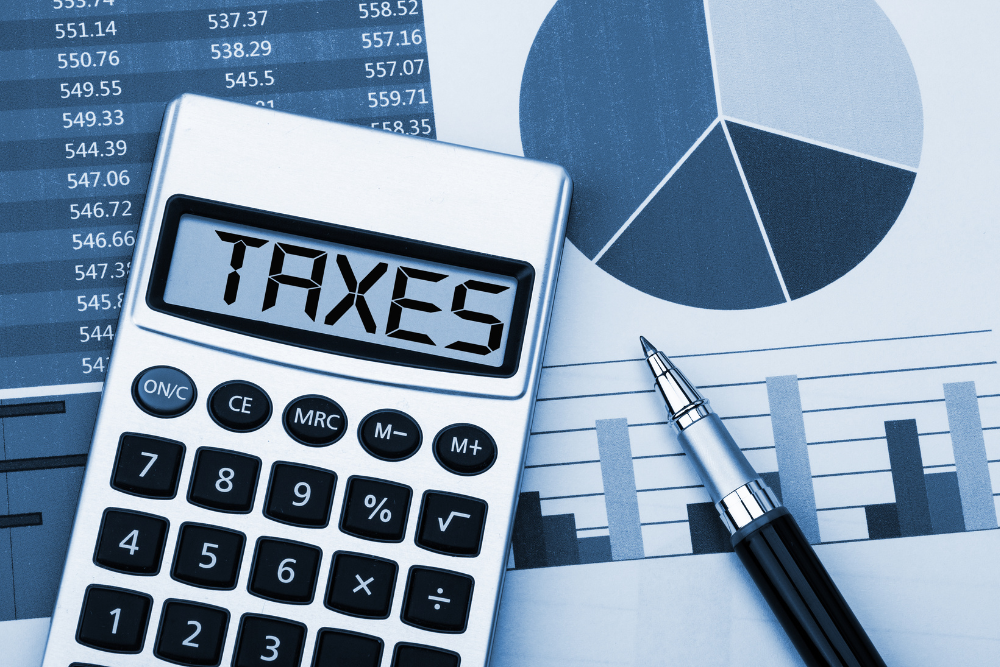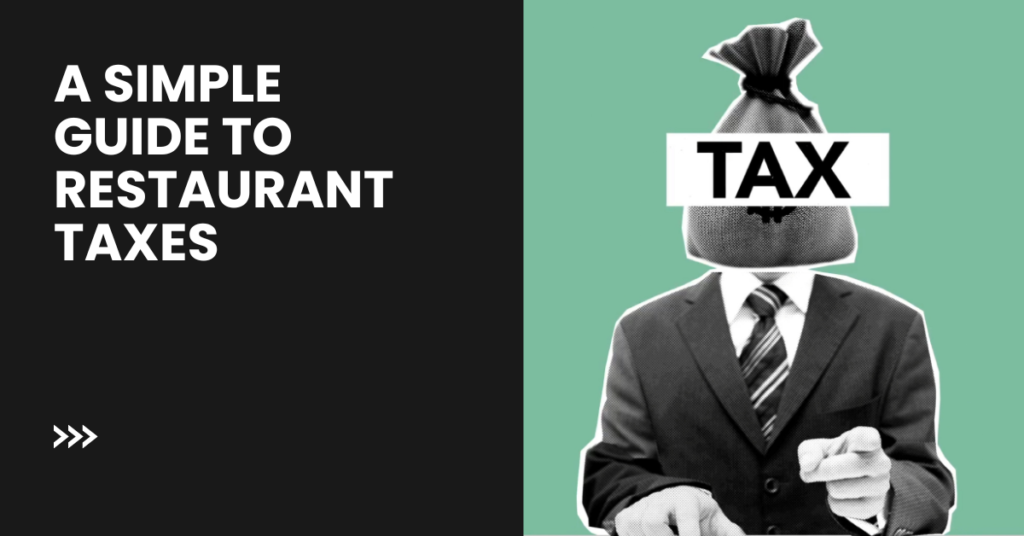For restaurant owners or managers, the tax landscape can seem daunting. It involves understanding income tax and sales tax regulations at the state and local levels. This complexity can be overwhelming. Yet, you can simplify your tax planning with the right knowledge and strategies.
This guide offers a clear overview of tax considerations for restaurants in the U.S. We’ll cover tax brackets, rates, and obligations you must know. We’ll also discuss common deductions and credits to reduce your tax liability. Furthermore, we’ll provide practical advice for staying current with tax deadlines and maintaining a strong tax compliance strategy.
Whether you’re an experienced restaurant owner or a newcomer, this guide will provide the knowledge and tools to navigate restaurant taxes confidently. By grasping your tax responsibilities and using deductions and credits, you can grow your business while keeping taxes low.
Understanding Tax Obligations for Restaurants
Restaurant owners face a complex tax landscape that can significantly affect their profits. Navigating through income, sales, and payroll taxes is crucial for success. This section will explore the main tax types restaurants must handle, ensuring compliance and reducing tax burdens.
Income Taxes: Calculations Based on Business Structure
Your restaurant’s structure, whether a sole proprietorship, partnership, corporation or another entity, affects how income taxes are calculated. It’s vital to understand the tax implications of your business structure for accurate reporting and timely tax payments.
Sales Taxes: Compliance with State and Local Regulations
Sales taxes for restaurants involve complex state and local regulations. Ensuring compliance with the right sales tax rates and reporting is crucial to avoid penalties and fines. Some items, like non-reusable supplies and equipment for food preparation, may be exempt from taxes. However, ready-to-eat meals and other taxable goods and services must be properly accounted for.
Payroll Taxes: Withholding and Employer Contributions
As an employer, you must withhold federal and state income taxes and contribute to Social Security and Medicare for your employees. Incorrectly calculating, withholding, or remitting payroll taxes can lead to significant penalties. Therefore, it’s crucial to understand your payroll tax obligations.
Understanding the income tax, sales tax, and payroll tax is key to compliance and minimizing your tax obligations. Stay vigilant, consult with tax professionals, and stay updated on tax changes to maintain your restaurant’s financial health.
Common Tax Deductions for Restaurant Businesses

Managing a restaurant’s expenses is crucial for success. Savvy owners can use various tax deductions to improve their financial standing. These deductions cover everything from ingredients and utilities to strategic record-keeping. This allows restaurants to lower their tax liability significantly.
Operating Expenses: Ingredients, Utilities, and More
One major deduction for restaurants is the cost of goods sold (COGS). This includes the cost of food ingredients, beverages, and other items used in meal preparation. Additionally, restaurants can deduct utility bills, rent or mortgage interest, insurance premiums, and maintenance costs.
Maximizing Deductions: Record-keeping and Strategies
To fully benefit from tax deductions, restaurants must keep detailed records of their expenses. This means documenting purchases, tracking employee wages and benefits, and accurately categorizing expenses. Restaurants can also consider the Qualified Business Income Deduction (QBID) and the Work Opportunity Tax Credit (WOTC). The QBID allows a 20% deduction on net income, while the WOTC offers a tax credit for hiring certain individuals.
By staying updated on tax deductions and maintaining thorough records, restaurants can significantly reduce their tax burden. This approach enhances their financial health.
Tax Credits to Reduce Restaurant Tax Liability
Restaurants can significantly lower their tax bills by leveraging various tax credits, in addition to deductions. These credits offer substantial savings and incentives for those who qualify. Let’s delve into the main tax credits available to the restaurant sector.
Research and Development (R&D) Tax Credit
The R&D tax credit aims to boost innovation and investment in new products or processes. Restaurants, including breweries, can claim this credit for experimenting with new recipes, cooking techniques, or menu items. This credit is claimable quarterly. Since tax year 2022, R&D expenses must be capitalized and amortized over 5 years.
Work Opportunity Tax Credit (WOTC)
The Work Opportunity Tax Credit rewards restaurants for hiring employees from certain groups, like veterans, ex-felons, or those on government aid. The credit amount depends on the employee’s wages and the target group. To qualify, restaurants must get certification from a designated local agency.
Energy-Efficient Appliance Credit
Restaurants can also benefit from the Energy-Efficient Appliance Credit by investing in eco-friendly kitchen equipment. This includes refrigerators, ovens, and dishwashers. This credit offsets the cost of upgrading to more sustainable appliances, cutting down on energy use and expenses.
| Tax Credit | Key Details |
|---|---|
| R&D Tax Credit |
|
| Work Opportunity Tax Credit (WOTC) |
|
| Energy-Efficient Appliance Credit |
|
By utilizing these valuable tax credits, restaurants can significantly reduce their tax liability and enhance their profitability. Restaurant owners must keep abreast of the latest tax credit opportunities. Working closely with tax professionals ensures they are fully benefiting from these incentives.
Compliance Tips and Best Practices
Ensuring tax compliance is vital for restaurants to dodge penalties and uphold financial health. Best practices include maintaining precise record-keeping and keeping abreast of crucial tax filing deadlines.
Accurate Record-keeping for Expense and Income Tracking
Restaurants should employ accounting software or similar tools for detailed records of expenses and income. This encompasses tracking tips received by employees, which are taxed for Social Security and Medicare if the total surpasses $20 in a calendar month. Employees must inform their employers about tips by the 10th of the ensuing month.
Employers must safeguard employee tip reports and deduct taxes from wages and tip income. If the total tips reported by all employees at a large food or beverage establishment fall short of 8% of gross receipts, the employer must distribute the shortfall among employees.
Maintaining a Calendar for Tax Filing Deadlines
- Employers are obligated to file Form 941 for quarterly tax returns and Form 940 for annual FUTA tax returns.
- Tipped employees are classified as those who consistently receive over $30 a month in cash tips.
- Federal regulations stipulate paying tipped employees $2.13 per hour in direct cash wages, with the remaining $5.13 of the federal $7.25 hourly minimum wage covered by tips.
| Tax Requirement | Deadline |
|---|---|
| Form 941 (Quarterly Tax Return) | April 30, July 31, October 31, January 31 |
| Form 940 (Annual FUTA Tax Return) | January 31 |
| Employee Tip Reporting to Employer | 10th of the month after tips are received |
Importance of Working with Tax Professionals

For restaurant owners, the tax landscape is complex and daunting. It encompasses income taxes, sales taxes, payroll taxes, and compliance requirements. Given this complexity, it’s essential to collaborate with tax experts who focus on the restaurant sector.
Specialized tax professionals, like accountants or tax attorneys, grasp the unique tax hurdles and opportunities restaurants encounter. They ensure compliance with tax laws, optimize deductions and credits, and craft strategies to reduce taxes.
Criteria for Choosing the Right Tax Advisor
When picking a tax advisor for your restaurant, consider these key factors:
- Industry Expertise: Ensure the tax professional has deep experience with restaurants and understands their tax challenges.
- Specialization: Opt for a tax advisor who focuses on restaurant taxes to get specific advice and solutions.
- Communication and Responsiveness: Choose someone who communicates clearly, responds promptly, and explains complex tax concepts simply.
- Proactive Approach: A proactive tax advisor identifies tax-saving strategies and advises on how business decisions affect taxes.
- Reputation and References: Research the advisor’s reputation, ask for references, and check reviews to confirm their quality of service and client results.
By working with the right tax professionals, restaurant owners can confidently manage restaurant taxes, optimize their tax strategies, and focus on business growth.
Tax Planning and Minimization Strategies
Effective tax planning is vital for restaurants aiming to lessen their tax load and boost financial health. By strategically handling their tax duties, owners can increase profits and set their businesses up for sustained success.
Forecasting and Budgeting for Tax Obligations
Accurate tax forecasting is key to sound financial planning. Owners must regularly assess their earnings, expenses, and other data to estimate future tax liabilities. This foresight enables them to set budgets wisely and sidestep tax-related shocks.
Optimizing Business Entity Structure for Tax Benefits
The business entity structure significantly influences a restaurant’s tax benefits. By meticulously reviewing and refining their entity setup, owners can leverage tax-saving chances, such as pass-through taxation or various tax credits and deductions.
| Strategy | Key Benefit |
|---|---|
| Full Expensing of Assets | Assets like leasehold improvements, equipment, and furniture can be fully expensed for income tax purposes in the year they are placed in service, with the deduction reduced to 80% of the asset value if placed in service in 2023. |
| Employee Retention Tax Credits | A wage-based refundable credit for wages paid during Q2 2020 through Q3 2021, applicable to businesses with revenue decline or impacted by government shutdown orders. |
| Work Opportunity Tax Credit (WOTC) and Empowerment Zone Credits (EZ) | Wages-based credits for eligible employees, expire on December 31, 2025. These credits can yield significant amounts in high-turnover businesses like restaurants. |
Tax Deadlines for Restaurant Owners
For restaurant owners, keeping up with tax deadlines is key to avoiding penalties and staying compliant. The tax landscape for restaurants includes quarterly estimated tax payments and annual returns. It’s vital to grasp these deadlines and meet your tax duties on time for your business’s long-term success.
Federal and State Tax Filing Deadlines
At the federal level, restaurant owners face a tax filing deadline of April 15th for their annual returns. They also need to make quarterly estimated tax payments on specific dates: April 15th, June 17th, September 16th, and January 15th. These payments ensure restaurant owners keep up with their tax obligations all year.
On top of federal taxes, restaurants must comply with state tax deadlines. These deadlines vary by state, so owners must know the regulations in their area.
Quarterly and Annual Tax Obligations
- Quarterly Estimated Tax Payments: Restaurant owners must make quarterly payments to the IRS for income tax, self-employment tax, and other federal taxes.
- Quarterly Sales Tax Filings: Many states require restaurants to file sales tax returns quarterly, usually around the 20th of the month after the quarter ends.
- Annual Tax Returns: Owners must file federal and state tax returns by April 15th, reporting income, expenses, and financial details.
- Payroll Tax Deposits: Employers must make payroll tax deposits regularly throughout the year for employees’ taxes, Social Security, and Medicare.
Meeting these tax deadlines is crucial for compliance and avoiding penalties. Working with a tax professional can help ensure your restaurant’s taxes are in order. This way, you can benefit from deductions and credits to lower your tax bill.
| Tax Deadline | Description | Due Date |
|---|---|---|
| Quarterly Estimated Tax Payments | Payments for income tax, self-employment tax, and other federal taxes | April 15, June 17, September 16, January 15 |
| Quarterly Sales Tax Filings | State-level sales tax returns | Typically around the 20th of the month following the end of the quarter |
| Annual Tax Returns | Federal and state tax returns for reporting income, expenses, and financial information | April 15 |
| Payroll Tax Deposits | Payments for employee income tax, Social Security, and Medicare contributions | Regular deposits throughout the year |
Navigating Complex Tax Laws
The restaurant tax landscape is complex, with laws and regulations constantly evolving. Owners must navigate this intricate terrain to stay compliant and capitalize on tax-saving opportunities. Understanding the tax implications of various business decisions is key to success.
Understanding Tax Implications of Business Decisions
Every aspect of a restaurant’s operations, from the Profit and Loss Statement to pricing strategies, carries significant tax implications. Effective cost management, such as optimizing food and labor costs, directly impacts taxable income. Pricing strategies that employ psychological techniques can also affect sales tax obligations.
Staying Updated on Tax Law Changes
- In 2023, 30 states had already allowed elective pass-through entity taxation, with seven more states enacting similar tax laws.
- Major tax legislation in Minnesota introduced tax changes affecting businesses after Dec. 31, 2022, including reductions in deductions and changes to global intangible low-tax income (GILTI) taxation.
- New Jersey enacted legislation in July 2023, altering Corporation Business Tax (CBT) rules, including the treatment of GILTI and foreign-derived intangible income (FDII).
- Tennessee is transitioning to a single-sales factor from a three-factor apportionment formula and phasing out 100% bonus depreciation.
- Arkansas reduced the top corporate tax rate from 5.3% to 5.1% for the 2023 tax year, with Nebraska planning to reduce its corporate income tax rate for future tax years.
Restaurant owners need to stay informed about these tax law changes. This ensures they remain compliant and can maximize their tax-saving opportunities. Consulting with tax professionals regularly can help navigate the complex legal landscape. Such advice supports informed decisions, ultimately aiding in long-term success.
Conclusion
This guide has offered a thorough look at the essential tax aspects and strategies for restaurants in the U.S. By grasping their tax duties, leveraging deductions and credits, and adopting sound tax planning and compliance, restaurants can enhance their financial health. This approach sets them up for sustained success.
The article has provided valuable insights for restaurant owners and managers facing the complexities of restaurant taxes. It covered everything from income taxes based on business structure to state and local sales tax rules. These topics are vital for a restaurant’s success.
By staying informed and proactive in tax management, restaurants can reduce their tax burdens and fortify their financial base. This enables them to concentrate on delivering top-notch dining experiences and expanding their businesses. The secret to success is a deep grasp of restaurant taxes and the use of effective tax planning and compliance strategies.
FAQ’s
What are the key tax obligations restaurants face?
Restaurants must comply with income taxes, sales taxes, and payroll taxes. The tax calculations and reporting vary by business structure.
What common tax deductions are available for restaurant businesses?
Restaurants can reduce their taxes through deductions for expenses like food ingredients, utilities, rent, and more.
What tax credits can restaurants claim to reduce their tax liability?
Restaurants may claim credits such as the Research and Development (R&D) Tax Credit, Work Opportunity Tax Credit (WOTC), and Energy-Efficient Appliance Credit.
What are the best practices for ensuring tax compliance in restaurants?
Best practices include accurate expense and income records and timely tax filing. Using accounting software and a tax deadline calendar can also help.
Why is it important for restaurants to work with qualified tax professionals?
Restaurant taxes are complex. Working with experienced accountants or tax attorneys who specialize in the industry is crucial.
What tax planning and minimization strategies can restaurants implement?
Restaurants can reduce taxes through effective planning. This includes forecasting taxes, budgeting, and optimizing their business structure for tax benefits.
What are the key tax deadlines that restaurant owners need to be aware of?
Restaurants must meet various tax deadlines, including quarterly estimated tax payments and annual returns, at both federal and state levels.
How can restaurants navigate the complex and constantly evolving tax landscape?
Restaurants can understand how business decisions affect taxes and stay updated on tax law changes to navigate the tax landscape effectively.
